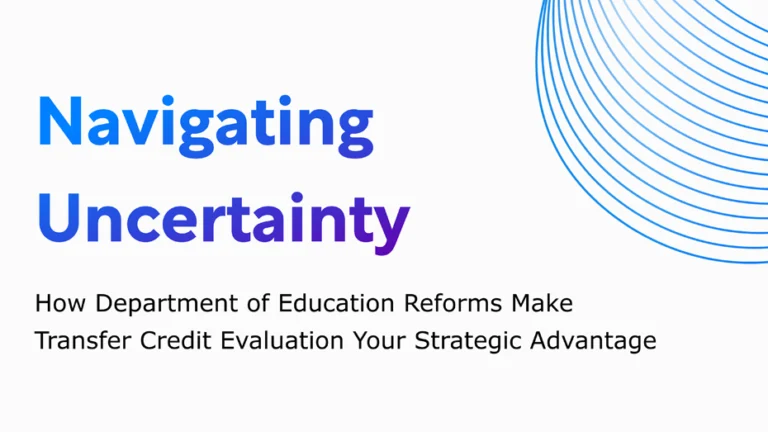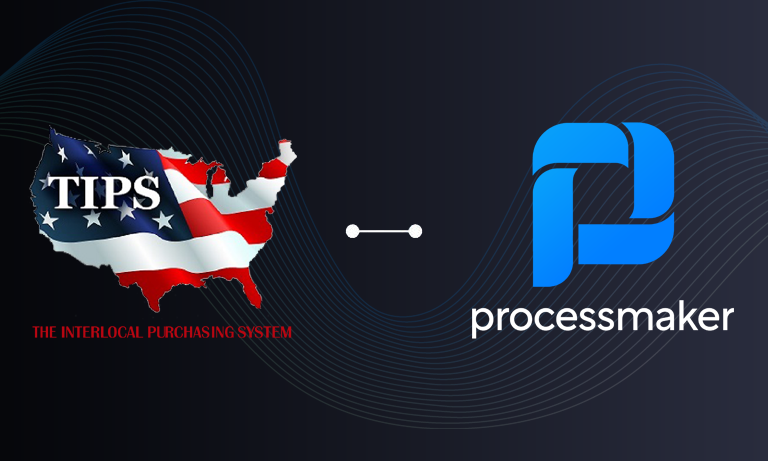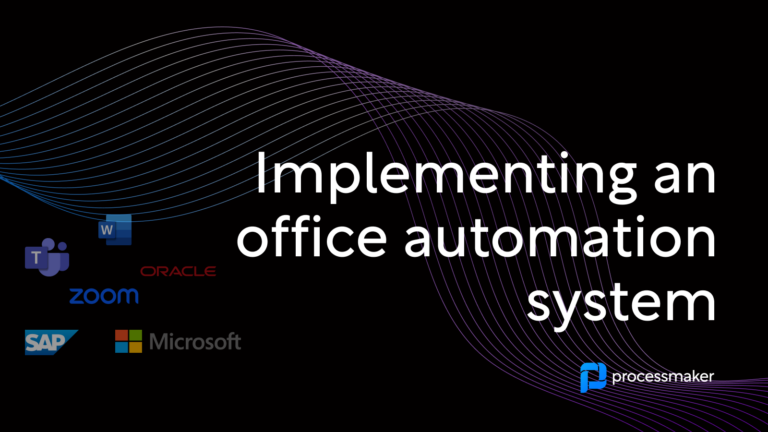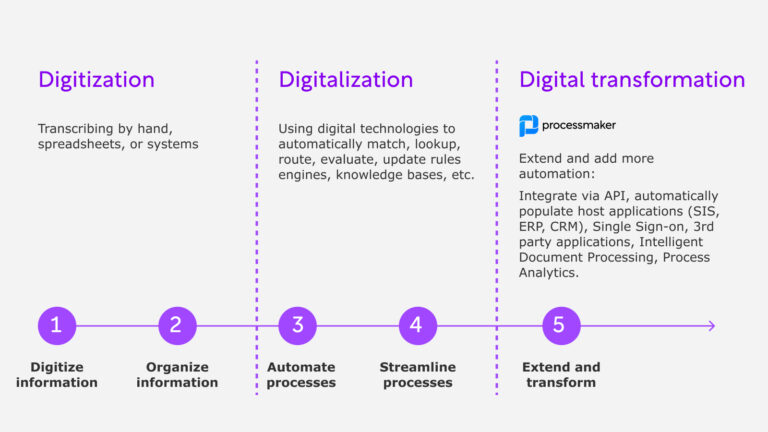Has your organization moved to the cloud yet? It’s worth considering in the age of digital transformation, as more and more businesses struggle to deliver a new high standard of customer experience.
The cloud is quickly becoming the go-to choice of deployment for many enterprises in the software space. Workflows, or the processes themselves, have traditionally been created and deployed as an on-premises (or on-site) solution. Digitizing these manual, paper-intensive processes in the cloud allows for a degree of flexibility, scalability, and security that isn’t available with an on-site solution.
Considering a cloud-based solution to help digitally transform your workflows? ProcessMaker is an Amazon Web Services (AWS) Advanced Technology Partner, meaning your data is stored in a trusted cloud provider. You can be sure your processes are designed and deployed with full operational efficiency using ProcessMaker’s cloud workflow solution.
Below, we will cover the five key benefits of using ProcessMaker’s workflow solution on the cloud.
First of all, what is the cloud?
The “cloud” refers to deploying software on in digital storage through the Internet. You also only pay for what you use. A more detailed description of cloud computing is when an enterprise accesses servers, storage, networking, and software through the Internet from a provider with pay-as-you-go pricing. The big three cloud providers include Amazon Web Services, Google Cloud, and Microsoft Azure. On the other hand, an on-premises solution means your infrastructure is physical and on-site.
Cloud computing has taken off in the last several years for its benefits in the SaaS space. This is due to the increasing trend of delivering the best customer experience for consumers, putting pressure on enterprises to digitally transform their business models.
Why is the cloud so effective?
Industries feeling the greatest need to service their customers better include financial services and higher education. The cloud offers an excellent way to do this due to a variety of reasons, most pertaining to high functionality in a flexible environment.
“The cloud holds the data like a bank holds money,” said ProcessMaker’s Sales Engineer, Ben Mackley. “If you get $1,000,000, the bank would have room to hold all of the cash. If you kept that money at home or the office, however, you might run out of space. You would have to buy another safe, which is just terribly inconvenient. With the cloud, you don’t have to do that.”
To Ben’s point, the degree of convenience that the cloud offers is unparalleled to an on-premises option. Here are some of the benefits of using ProcessMaker’s cloud workflow solution:
1. Automatic
ProcessMaker’s cloud bpm solution helps banks, universities, manufacturing companies, government agencies, and more to streamline the way their organizations run. The SaaS offering harnesses the power of the cloud to update everything in real-time. This lets you sit back and relax while all of your processes can update without manual interaction. For universities, say a student needs to turn in a specific document by a hard deadline for their financial aid. The Financial Aid office receives a notification, along with the student, via email that lets the student know of the deadline minus the physical hand-offs and paper.
2. Faster setup and easier support
With ProcessMaker’s cloud workflow solution, it’s as easy as setting up the initial platform and connecting your third-party integrations into ProcessMaker. The solution is backed by the longest-running cloud provider in the technology industry, Amazon Web Services (AWS). With this credibility behind ProcessMaker, working in the cloud offers a layer of increased security and flexibility that isn’t found with other cloud providers. Best of all, digital support is on-hand virtually any time, anywhere, if there is an issue.
3. Cost-effective
With physical hardware or multiple third-party apps, managing workflows can get complicated. Change one little detail and you have to update your entire system or each individual app. Even worse, hardware is prone to breaking. Repairs aren’t cheaper, plus the amount of space it takes to store physical infrastructure can be costly and require more square footage in a building. Entire software updates can be with the click a button at 1/100th of the cost with the cloud. You save paper and time too since everything is digital with ProcessMaker’s cloud workflow solution.
4. Easier to scale
Without the cloud, replacing software or hardware can take months. Even pumping up the functionality of your legacy solutions can save serious time without having to scrap all of your existing investments. Cloud platforms are generally lightweight and more agile than their legacy counterparts. Since nearly everything is digital anyway, scaling and adding more integrations is simple with the cloud. For the most part, cloud platforms are also low-code, meaning your programmers can code less and your business users can create workflows without coding knowledge. The cloud makes it possible to deploy processes in a matter of weeks rather than months as with on-premises solutions.
5. Increased security
Unlike with physical, on-premises solutions, hosting on the cloud means that someone else is managing your data. As with Amazon Web Services, Microsoft Azure, or Google Drive, your data is protected and stored through that cloud provider. For companies that may not have the technological or cybersecurity infrastructure in place, this can be music to their ears. These major cloud providers are also compliant with industry standards, something that can prevent your enterprise from missing deadlines or accruing penalty fees.
Preparing to go digital
As with any change in technology, there will be things to consider when moving to the cloud. Consider these four questions when migrating to a cloud workflow solution:
1. Is your enterprise prepared to handle implementing a new system?
2. What amount of control does your enterprise need over the cloud solution? Is the private cloud a better option for you?
3. Is your budget able to spend a larger sum upfront to achieve long-term rewards?
4. Does the ProcessMaker cloud workflow solution integrate and work well with your legacy software, such as DMS, ERP, CMS, and CRM systems?
Asking these important questions upfront can ensure your company is making the best decision possible while preserving your existing investments.
In conclusion
The cloud is helping enterprises compete in their respective markets to meet new customer demands, along with accelerate their product offerings. The cloud offers an increased layer of flexibility, security, agility, reduced cost, and scalability that on-premises solution doesn’t. In higher education alone, the cloud can reduce infrastructure costs by up to 40%.
Is your enterprise looking for a way to extend your legacy systems and migrate to the cloud? Check out our enterprise workflow solution at www.processmaker.com.
About ProcessMaker
ProcessMaker is a low-code business process management and workflow software. ProcessMaker makes it easy for business analysts to collaborate with IT to automate complex business processes connecting people and existing company systems. Headquartered in Durham, North Carolina in the United States, ProcessMaker has a partner network spread across 35 countries on five continents. Hundreds of commercial customers, including many Fortune 100 companies, rely on ProcessMaker to digitally transform their core business processes enabling faster decision making, improved compliance, and better performance.
Read more:





